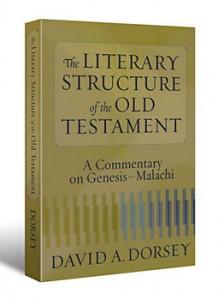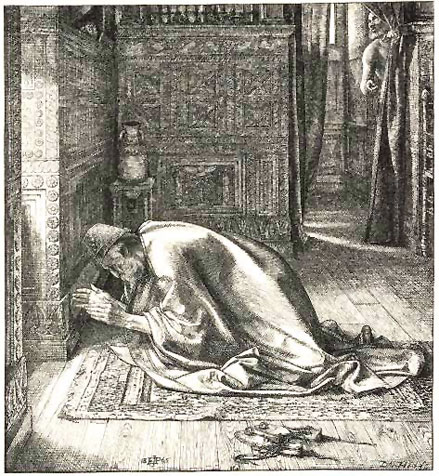Jun
12
2009

Isaiah’s visions of Israel’s restoration have nothing to do with a future millennial golden age for the Jews, or even directly with the first century, except by the events of the Restoration era prefiguring later history. His words were for his hearers, for both their condemnation and their hope in the near future. Why do we get him wrong?
Continue reading
3 comments | tags: David, Isaiah, Millennium, Mordecai, Noah, Restoration, The flood, Zerubbabel | posted in Biblical Theology, The Last Days, The Restoration Era, Totus Christus
Apr
15
2009
 “I began writing this book some ten years ago, although my interest in Hebrew literary structure goes back a decade before that. My fascination with the subject was kindled when I began teaching Old Testament courses in seminary. At that time I was struck by the apparent lack of order within many of the biblical books. Jeremiah seemed hopelessly confused in its organisation; so did Isaiah and Hosea and most of the prophets. Song of Songs and Ecclesiastes appeared to be in almost complete disarray, and even the more orderly historical books, such as Joshua and Kings, showed signs of strangely careless organisation. Why did the biblical authors write like this? I would never write a book, an article, or even a private letter with such carelessness of arrangement.
“I began writing this book some ten years ago, although my interest in Hebrew literary structure goes back a decade before that. My fascination with the subject was kindled when I began teaching Old Testament courses in seminary. At that time I was struck by the apparent lack of order within many of the biblical books. Jeremiah seemed hopelessly confused in its organisation; so did Isaiah and Hosea and most of the prophets. Song of Songs and Ecclesiastes appeared to be in almost complete disarray, and even the more orderly historical books, such as Joshua and Kings, showed signs of strangely careless organisation. Why did the biblical authors write like this? I would never write a book, an article, or even a private letter with such carelessness of arrangement.
I was intrigued by the possibility that the Hebrew authors might have organised their compositions according to literary conventions that were different from ours. I began to discover, over a period of years, that several structuring patterns rarely used by us were remarkably common in the books of the Hebrew Bible, particularly chiasmus (symmetry), parallelism, and sevenfold patterns. I was increasingly struck by how often these patterns had been utilised to arrange biblical books…
It was my mother who gave me a love for literature. She read to my brother Stephen and me regularly, from as early as I can remember. I still have many fond memories of those wondrous bedtime stories, whose structures — like the Bible — were designed for the ear, not the eye.”
David A. Dorsey, The Literary Structure of the Old Testament, p.9-10 (Preface).
Comments Off | tags: Chiasm, David A. Dorsey, Ecclesiastes, Hebrew, Isaiah, Jeremiah, Literary Structure, Old Testament, Song of Songs | posted in Quotes
Apr
10
2009

A new Adam (High Priest) ruled the wild animals of the Gentile kingdoms, but without a king this rule would be truly priestly. Daniel prefigured the nature of this new kingdom: obedience would bring persecution, and suffering as witnesses before the Gentiles would be the means of Gentile conversion. A new Israel would be the initial fulfilment of the despised, suffering priestly servant of Isaiah 53. When the Lord scattered His people for their sin, He also spread them to the four winds as witnesses to the empire.
Continue reading
Comments Off | tags: Daniel, Esther, Greek philosophy, Isaiah, Mordecai, oikoumene, Peter Leithart, Power of the Gospel, Typology, Witness | posted in Biblical Theology, The Last Days, The Restoration Era
Apr
10
2009
Jesus As Yahweh
Veli-Matti Karkkainen points out that Philippians 2:9-11 alludes to Isaiah 45:22-23, where Yahweh declares Himself to be the one and only God, before whom “every knee will bow” and by whom “every tongue will swear.” Thus, “for Paul the resurrected and exalted Christ enjoys the same status as the God of Israel.”
Peter Leithart, www.leithart.com
Comments Off | tags: Isaiah, Paul, Peter Leithart, Resurrection | posted in Biblical Theology, Quotes
Apr
10
2009
“Behold, the day of the LORD comes, Cruel, with both wrath and fierce anger, To lay the land desolate; And He will destroy its sinners from it. For the stars of heaven and their constellations Will not give their light; the sun will be darkened in its going forth, and the moon will not cause its light to shine.”
You’ll never understand a book if you only ever read the last chapter. If you thought this quote was from the New Testament you are almost right. It is from Isaiah 13, and Jesus quotes it. It begins: “The burden against Babylon which Isaiah the son of Amoz saw…”
Would Jesus’ audience have thought He was referring to the destruction of the cosmos? Nup. They would (or should) have realised that He was calling Judah a new Babylon, and that the “sun, moon and stars”, the governing lights of her kingdom were about to come crashing down.
Jesus had a sharp mind, and a sharp mouth. A lot sharper than us when we misinterpret Matthew 24.
Comments Off | tags: Apocalyptic, Babylon, Hermeneutics, Isaiah | posted in The Last Days
Apr
10
2009
James B. Jordan, following the God-given office of Cyrus as shepherd over Israel (Isaiah 44:28), interprets Zechariah 11 as a prediction of events under Greek rule, rather than Roman:
“The wicked Hashmoneans took over the Temple for themselves, and did not give glory to God and restore the true High Priest. The Hashmoneans “buy” the Temple for thirty pieces of silver, but Yahweh rejects their offer, which treats Him and His people as slaves. These evils result in the Jews being broken apart and set at each other’s throats.”1
Either way, the pattern is the same, as the Jews’ apostasy under Greek rule was repeated under Rome, with the “Temple” they sold in the second instance being Christ Himself. Both “Greek” and “Roman” interpretations link the events of chapter 10 to chapter 12, and echo the judgments upon false shepherds by the pre-exile prophets. And in both cases, it is the “Temple” seen by Ezekiel that is being judged. The flock is divided and the Temple made desolate under Antiochus Epiphanes (Greece), and under Christ and Titus (Rome).
The most important factor is that in both events, the Jews’ compromise left them without a true High Priest, and thus no true Atonement.
_______________
See James B. Jordan, The Handwriting on the Wall, p. 585-587.
Comments Off | tags: Antiochus Epiphanes, Atonement, Compromise, Cyrus, Ezekiel's Temple, High Priest, Isaiah, James Jordan, Temple, Zechariah | posted in Biblical Theology




























